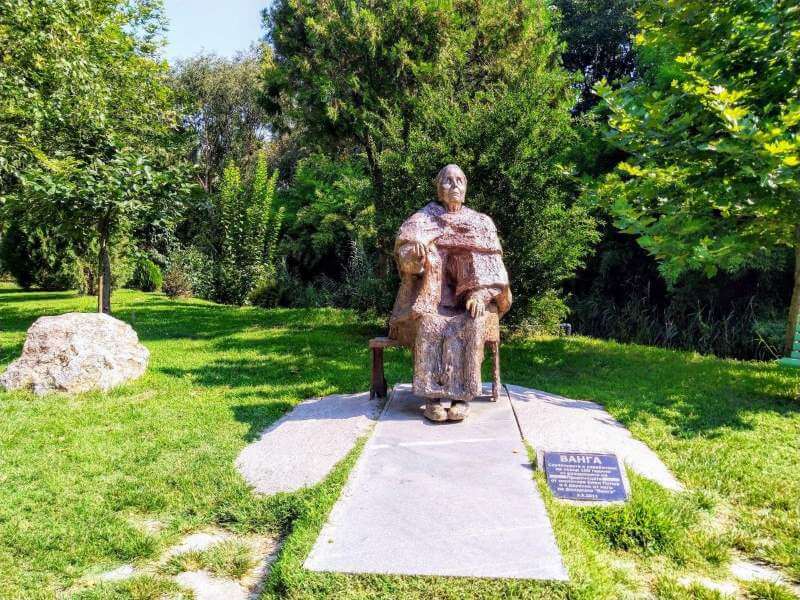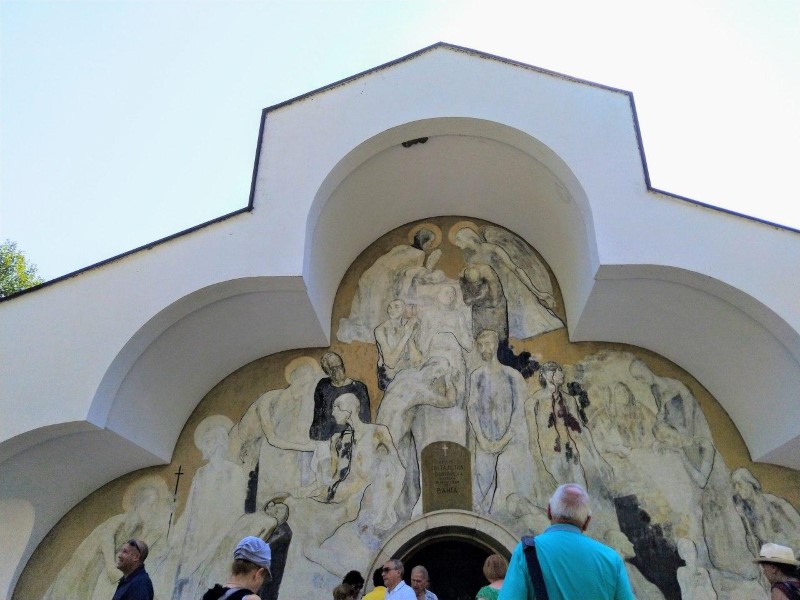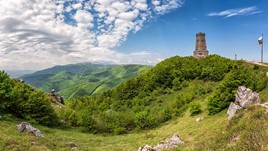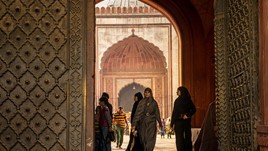
By Chris Deliso
Travel Writer31 May 2020 - 5 Minute Read
The gathering was completed in Sofia; mid-morning sunlight illuminated the hotel foyer’s concentric circles, each group adhering to its own inscrutable logic. Some would melt back into the city – one mysterious Ukrainian delegation was reportedly visiting important persons elsewhere in the capital. Others were leaving Bulgaria, and still others awaited further instructions.
Our own contingent (bound for Skopje, a five-hour drive dead west across the Macedonian border) was already loading up the car to depart, when someone from the American military-industrial complex came running up.
“What’s happening?” I inquired, when our Macedonian driver returned from negotiations.
“It’s about the Russian astrologer. We must take him to see Rupite,” he replied. ‘On our way home.’”
“Bellissimo! That’s the village where the mystic, Baba Vanga, lived,” exclaimed a charismatic Italian businessman, our younger fellow traveler.
“But… Rupite must be… down the southern highway, almost to Greece,” I protested, inspecting my watch. “Kinda opposite to ‘on your way home.’”
Our fourth comrade, a dead-ringer for Yugoslav dictator Josip Broz Tito, hastily spoke up. “They please us to accept this mission,” he intoned diplomatically, adjusting his thick glasses. “I understand this man’s among Russia’s most famous astrologers and numerologists.”
“What the hell,” I laughed. After all, unexpected travels with complete strangers had defined my Balkan experiences for almost two decades.
* * * * *
Almost everyone wants insight into the future. In Bulgaria, however, endemic Orthodox piety and a whimsical occultism have given rise to unique practices and personalities – none more famous than Baba (‘Grandmother’) Vanga (1911-1996).
Born just across the border in Strumica, Macedonia (then, Royalist Yugoslavia) as Vangeliya Dimitrova, she was caught up in a freak sandstorm that blinded her at age 12. This harrowing experience reportedly caused her to develop psychic powers, enabling her to predict events and communicate with the dead. After later moving to Bulgaria, Vanga’s reputation grew. During WWII, thousands (including her future husband) would visit her to inquire about the fate of loved ones missing or dead.
The media still recount her alleged prophecies. These included a “cataclysmic tsunami”, a chemical weapons attack by terrorists, and an assassination attempt against Russia’s president.
As a postwar Soviet satellite under dictator Todor Zhivkov (whose own daughter became a Vanga devotee), Bulgaria made an arrangement with the psychic, situating her in Sofia’s splendidly named Institute for Suggestology. In 1971, under the watchful eye (and, reportedly, wiretapping gear) of State Security, Vanga moved back to the Rupite countryside, where she continued to receive visitors ranging from ordinary people to the Soviet leadership.
The clairvoyant’s reputation has survived both the end of communism and Bulgaria’s 2007 EU membership. In 2017, Bulgaria and Russia (an important tourism partner) pledged to develop spiritual tourism. While this mainly concerns the Bulgarian Orthodox Church’s monasteries, Vanga still fascinates many in Russia (and elsewhere). It made sense that a Russian astrologer visiting Sofia would want to see the psychic’s home village.
Since Vanga couldn’t write, her predictions are poorly archived and oft-debated, derived largely from former staff records and the claims of occult authors. But the media still recount her alleged prophecies. For example, the British tabloids rang in 2020 by compiling Baba Vanga’s alleged, imminent warnings of doom. These included a “cataclysmic tsunami”, a chemical weapons attack by terrorists, and an assassination attempt against Russia’s president.
* * * * *
Our drive from Sofia to Rupite took a little over two hours. Arriving at the site, it was clear that Vanga’s fame was indeed international: cars and buses from as distant as the Czech Republic, Romania, and Ukraine were among the sea of parked Bulgarian plates.

We walked down a leafy road lined with long wooden tables, where cheerful villagers hawked everything one might need for a life in harmony with nature and clairvoyance. These items ranged from mountain honey to various rare crystals, which our Tito lookalike eyed judgmentally. The others in my group asked the Russian astrologer to explain their uses in different occult ceremonies, while I dropped two leva (one dollar) on a kid’s present (a wooden battle-axe with the moniker ‘Bulgaria’ burned into it).
Inside the sanctuary proper, it became clear why Vanga had chosen this particular spot for her spiritual retreat. A once-volcanic mountain, topped by a cross, loomed over fields dotted with wispy trees. Warm breezes rippled the rock-enclosed mineral-water pools that (signs attested) exceeded 70 degrees Celsius. Further on, a decidedly cooler pond featured languid turtles. Families pushed strollers on well-kept paths, while kids kicked soccer balls. All occultism aside, Rupite seemed merely the locals’ go-to option on a lazy Sunday afternoon.
We ambled over to the church, opened after decades of legal and ecclesiastical wrangling. Flummoxed by frescoes appearing to imply Vanga’s divinity, the Bulgarian Orthodox Church in the 1990s resisted its consecration, and still doesn’t recognize it as a proper Christian shrine. However, in 2014 the courts finally allowed Baba Vanga’s memorial foundation to open the complex (the church, the grounds, and Vanga’s own modest home).

The church, a bright-white, almost space-age structure, was filled with icons, where visitors stood praying for intercession in the enigmatic zone between Christianity and Vanga’s obscure occultism. Her memorial home, by contrast, was old and decrepit. You had to stoop to enter, and squint in the darkness at the antiquated furnishings of the rather spooky rooms where Vanga lived and saw her guests.
While the house was claustrophobic, the general site exuded a deeply soothing energy. Emerging into the sunlight, I spied the famous Russian astrologer, clutching the old tarot cards he had been shuffling incessantly during our drive down from Sofia.
“He will open the cards for you now,” announced the Macedonian driver, leading me towards a high, shady tree, under which a bench had been providentially placed. “I can help translate.”
“Excellent!” I replied. What would the future hold for me? It was precisely the question one would come to Rupite to have answered.
Discover similar stories in
discovery
Travel Writer
Chris Deliso is an American travel author and journalist based in Southest Europe for most of the past 20 years.




No Comments